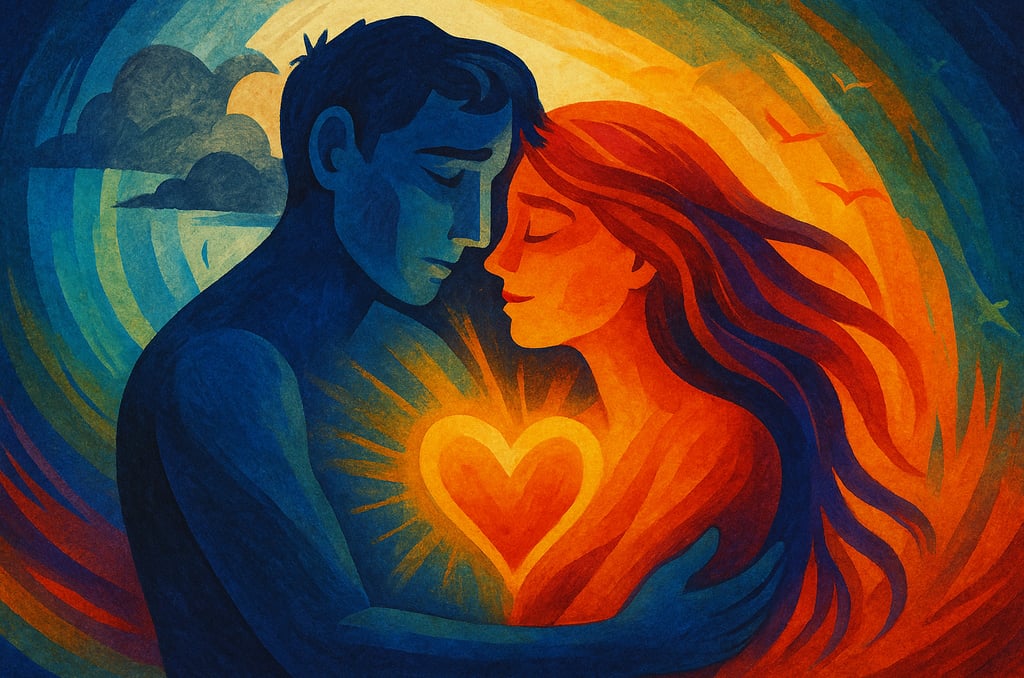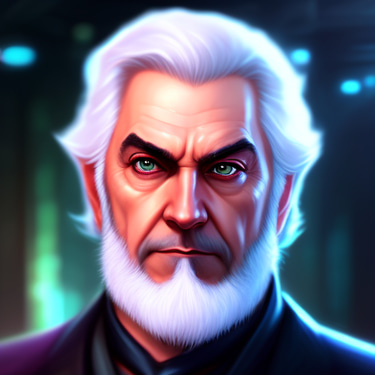After Waking Up (Part 2): Growing Apart, Together
In Part 2 of this series, I write about what it means to grow — apart, together, and back toward each other — after shedding the roles imposed by a high-control belief system. It’s about fear, freedom, and the small daily choices that rebuild connection. Heads up: While not graphic, this piece contains candid reflections on intimacy, emotional vulnerability, and the long-term effects of religious indoctrination.
WHAT BROUGHT ME HERE
Oliver
7/9/20254 min read


IV. The Desire to Grow — Together
Leaving the religion forced us to reevaluate everything — not just what we believed, but who we were. For Fadéla, that shift came quickly. As soon as she realized we were truly out, she threw herself into the things she had always been drawn to: politics, community engagement, volunteering. These were passions that had been sidelined for years, and finally, she felt free to pursue them. And I admired that — still do.
But it also created friction. Because for me, the process was slower. I didn’t feel like I needed to radically reinvent myself. I wasn’t itching to run toward something new. I stayed with what I knew. I connected with ex-Jehovah’s Witnesses, built friendships in that space. It was familiar, and it felt safe. I wasn’t running toward anything — but I was starting to carefully and cautiously walk away from something.
Looking back, I see how different our starting points were. Fadela had friendships and support networks outside the religion. I had almost none. I wasn’t drawn to the things we’d once considered “taboo” — holidays, birthdays, celebrations. Those still didn’t matter to me, not out of principle, but because I just didn’t care. Maybe that’s the introvert in me. Or maybe it’s just part of the person I’ve always been.
Still, I wonder if I should’ve tried harder to grow toward her. To absorb some of her energy and boldness. And maybe I could have helped her develop some of the quieter strengths I brought into the relationship. But back then, the religion had us boxed in. It told us who to be, and there wasn’t much room to move. Now, without that framework, we’re discovering something new. Not a merging into one person, but a connection that allows us to become more fully ourselves — together. Different, but deeply intertwined.
We don’t always grow at the same speed. Sometimes one of us moves forward faster; sometimes the other pulls back. That’s part of it. What matters is that we stay connected. That we keep adjusting and making space for each other. Fadela thrives in settings that I find overwhelming, but I make the effort to join her now and then. And she knows I sometimes just need her quiet presence, with no plan and no expectations. We’re learning how to meet each other where we are.
And that brings hope. Because even in the fear and uncertainty, we’re rediscovering each other. In ways that are deeper, more open, and more real. We’re not basing our connection on doctrine or duty — but on the bond we’ve built over time, and the love we still feel. It’s neither static nor guaranteed. What matters is that it’s growing.
V. Fear and Hope
There’s a fear that comes with change — especially when the person you love starts evolving in ways you didn’t expect. Sometimes your first instinct is, Wait... this isn’t you. It’s unsettling, because we’re not used to that kind of transformation. It’s not like changing jobs or moving to a new city. Losing the identity that defined you for over four decades is a rupture that reaches into every corner of your life. And with that kind of rupture comes a swirl of emotions — pain, confusion, sadness, grief. It shakes you.
But even in the fear, there’s love. And if that love is strong, you fight for it. You ask questions. You try to understand. You learn to hold on, even when everything feels unsteady.
There’s also the fear of drifting apart — of becoming strangers to each other. I’ve felt that. If one person stays still while the other races forward, the distance can become too great. I never wanted that. I didn’t want to stay rooted in the comfort of the familiar while she moved ahead without me. So I’ve tried to step out of my bubble. Not all the time, but enough to meet her halfway.
And she does the same. She knows I value quiet time, closeness without an agenda. And she gives me that. We each make room for the other. We learn what nurtures us individually, and what holds us together.
What gives me hope is how often we find each other again — how we keep discovering new layers in each other. We’ve been through a lot. But the core connection hasn’t gone away. If anything, it feels more honest now. We don’t rely on rules or roles to define our relationship. We rely on who we are, and how we feel when we’re together.
Disagreements happen. Fights happen. That’s normal. But love isn’t a fixed point. It can grow. It has grown. Even after all these years, our bond is stronger because we keep choosing it — over and over.
VI. The Best Life, Reclaimed
What’s survived isn’t the structure. Not the roles, not the expectations. What’s survived is the emotional core. That deep sense of connection that existed before all the layers of religion, and that’s still here now.
We’ve seen so many couples fall apart after leaving the organization. And it’s heartbreaking. Sometimes, it’s because one person stays and the other leaves. But even when both partners walk away, the cracks that were hidden for years suddenly become visible. And you realize that the framework was the only thing holding it together.
For us, the weight of that framework is gone. And with that has come a lightness — a freedom. Our connection is no longer conditional on belief, conformity, or performance. It’s rooted in who we are. What we feel. What we want to build.
There’s something deeply healing in that. Letting go of the concept of sin, for example, makes space for self-acceptance. It removes the constant burden of shame and guilt — especially when it comes to sexuality. We’ve stopped measuring ourselves by the standards of a system that never truly saw us. And in its place, we’re creating something that feels real.
Even jealousy — something I once struggled with deeply — has started to loosen its grip. In the past, I was taught to be vigilant. To police my wife’s interactions. To feel uneasy whenever she connected with someone too freely. That mindset poisoned intimacy. But now, I’ve begun to let it go. And it feels like stepping out into fresh air.
We’re not the same people we were. And that’s okay. We’re growing — not just as individuals, but as a couple. And at the end of the day, we’re still choosing each other. Not because someone told us to. Not out of obligation, but because we want to.
This is the best life ever.
(Hat tip to the Jehovah’s Witness slogan. They were almost right — just not in the way they thought.)
